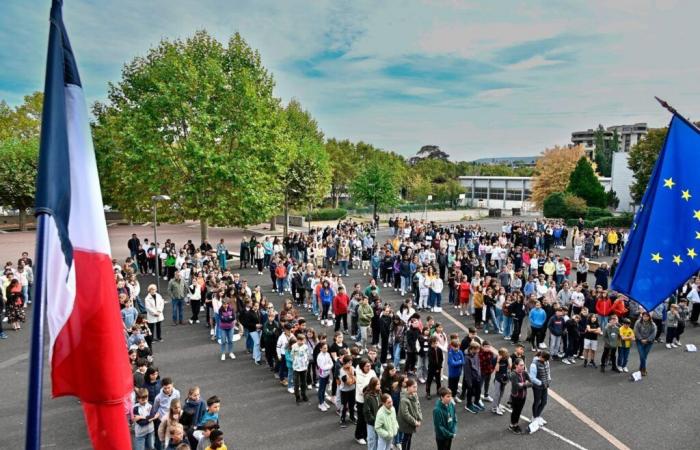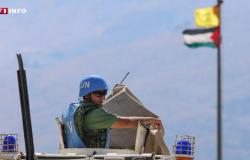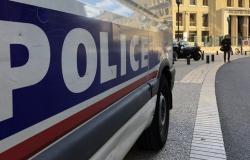Did the State fail by not protecting Samuel Paty? Did the ministries of the interior and national education underestimate the threat weighing on the teacher who was stabbed and then beheaded on October 16, 2020 near the college where he taught, in Conflans-Sainte-Honorine (Yvelines)? These questions will inevitably hover over the trial which opens Monday November 4 before the special assize court of Paris. Even if the five magistrates will not have the task of answering these questions which, four years later, continue to torment part of Samuel Paty's family. The role of the court will be to judge eight people suspected, to varying degrees, of having played a role in the assassination of the history-geography professor by a young man of 18, Russian of Chechen origin, killed by the police a few minutes after his act.
But the courts will still rule on possible failings by the administration. In April 2022, ten members of the Paty family filed a complaint against “failure to prevent a crime and failure to assist a person in danger”. “An investigation is underway. This family wants to know what could have been done to prevent what happened. Perhaps we should have protected Samuel Paty or, at the very least, changed his establishment for a few weeks. believes their lawyer, Me Virginie Le Roy.
“The principal raised all the alerts she could raise”
By hearing the principal of the college as well as several teachers, the Assize Court will get an idea of how the institution reacted to the excitement following the presentation by the professor, on October 5 and 6, 2020, to two fourth grade classes, caricatures of the Prophet Mohammed published in Charlie Hebdo. Faced with the very virulent videos broadcast against him on social networks, the principal did not remain inert. On October 8, she alerted the rectorate before warning the mayor the next day who, immediately, passed the information on to territorial intelligence.
On October 13, the principal also went to the police station to file a complaint with Samuel Paty who, three days later, was killed by this young jihadist from Évreux (Eure) and outside the college. The reality of the threat was in fact underestimated by territorial intelligence which, in a note dated October 12 to the prefect, estimated that communication between the college management and the families had “allowed tensions to be eased”.
“In this case, the principal raised all the alerts she could raise,” believes Carole Zerbib, member of the National Union of National Education Management Personnel (SNPDEN), who does not hide the trauma caused by the death of Samuel Paty. “We realized that teachers could be targets in the same way as the police or the military. What the death of Dominique Bernard confirmed in 2023″, says Carole Zerbib.
How does the school now manage problems of radicalization? Four years after the death of Samuel Paty, the question is particularly acute. Today, in fact, the terrorist threat emanates largely from individuals present in the territory who, in the opinion of the intelligence services, are increasingly young.
A moment of discussion around Samuel Paty, at the Jean-Lurçat high school in Perpignan, October 16, 2023. / MICHEL CLEMENTZ / PHOTOPQR/L'INDEPENDANT/MAXPPP
In 2023, 15 minors were indicted for acts of terrorism. In 2024, there will be 16. Whereas in previous years, only two or three minors were involved. “Faced with these young people who are becoming radicalized earlier and earlier, schools have a role to play in prevention and detection, because they may be confronted with the emergence of comments or behaviors that could alert them,” indicates Séraphin Alava, professor of educational sciences at the University of Toulouse and member of the UNESCO chair on the prevention of radicalization.
“For some teachers, it’s heartbreaking to make a report”
To help educational staff spot signs of radicalization, a practical sheet was distributed in 2018 to establishments. “The problem is that it is not always easy to distinguish between truly problematic behavior and an attitude that is simple defiance of authority or discomfort that we often see in adolescence” , indicates Sophie Vénétitay, general secretary of the Snes-FSU union.
“This is why it is very important that a teacher, having doubts, cross-references his information with all the other members of the educational team,” adds Carole Zerbib. “For some teachers, it’s heartbreaking to report. They tell themselves that their primary role is to educate and that the kids reported will keep the label of “radicalized” for life. explains Séraphin Alava. To these teachers, I say that reporting is not condemning. On the contrary, it can help a young person who is adrift. »
When an establishment head makes a report to the rectorate, the information is transmitted, as was the case for Samuel Paty, to territorial intelligence (RT), which will carry out a local investigation. “We will gather all the available information on the young person and his family. We will look if it has, for example, a fundamentalist religious practice. We are going to look at what the young person was able to broadcast on social networks”explains Alain Pissard, national referent on RT for the Un1té union.
In a large number of cases, the police will find that the young people targeted by the investigation do not present any danger and have just acted through a sort of “anti-teacher teenage stupidity”underlines Alain Pissard. “Today we still see certain young people threatening a teacher by saying: “I’m going to do a Samuel Paty on you”. In many cases, it's just kids who are immaturely distrustful and who know that by making this terrible reference, they risk scaring their teacher.” explains the policeman.
In 2024, an attack plan foiled after a report from national education
But this evaluation work can also reveal a problematic situation or the beginnings of radicalization among the student. In this case, it will be directed to the departmental monitoring unit for the prevention of radicalization and support for families (CPRAF). “Every week or every two weeks, in all departments, the RT has a meeting with the other intelligence services. All cases are presented and evaluated. And if the situation of a young person appears really problematic, the DGSI (General Directorate of Internal Security, Editor’s note) can take up the case and carry out legal investigations with more resources”, indicates Alain Pissard.
Last year, three teenagers, one aged 15 and the other two aged 16, living in Touraine, were indicted for a planned attack against the Israeli embassy in Brussels. According to a note from the DGSI, revealed by The Parisian, two of these young people had stood out for their worrying proselytizing behavior in their school. Which led to a report from national education.






